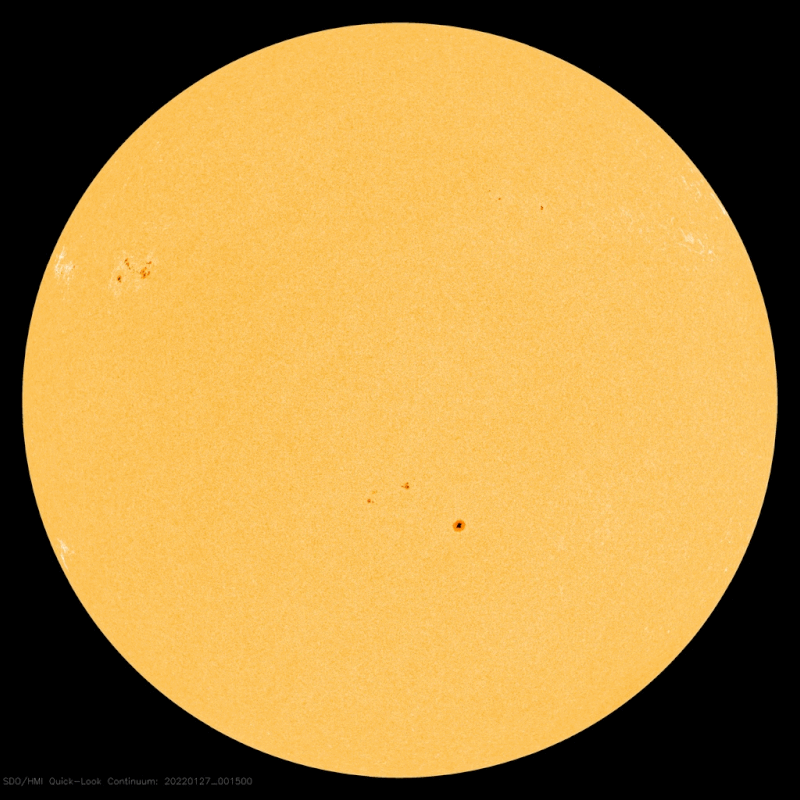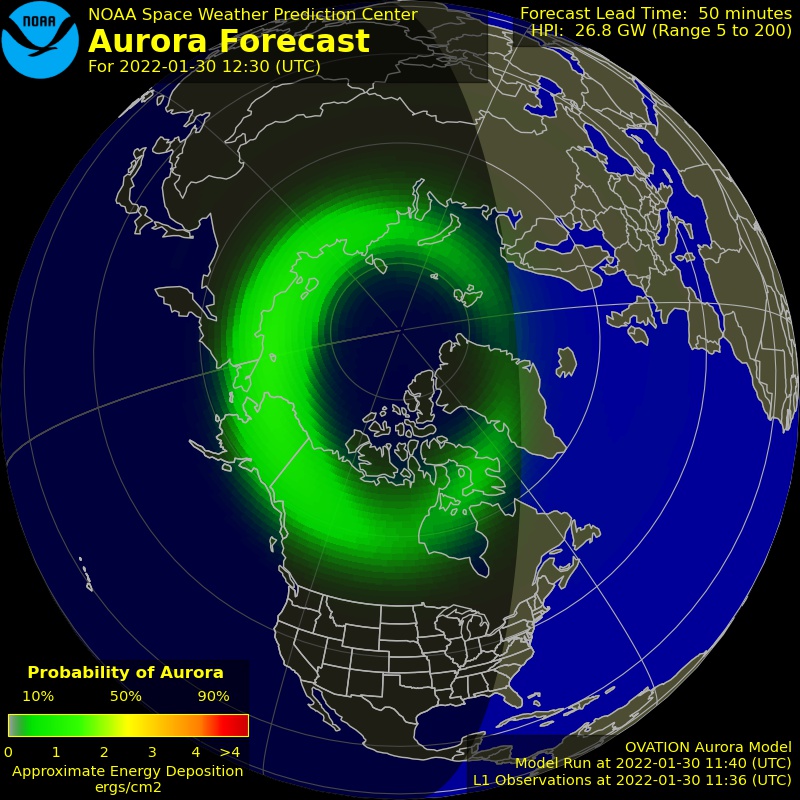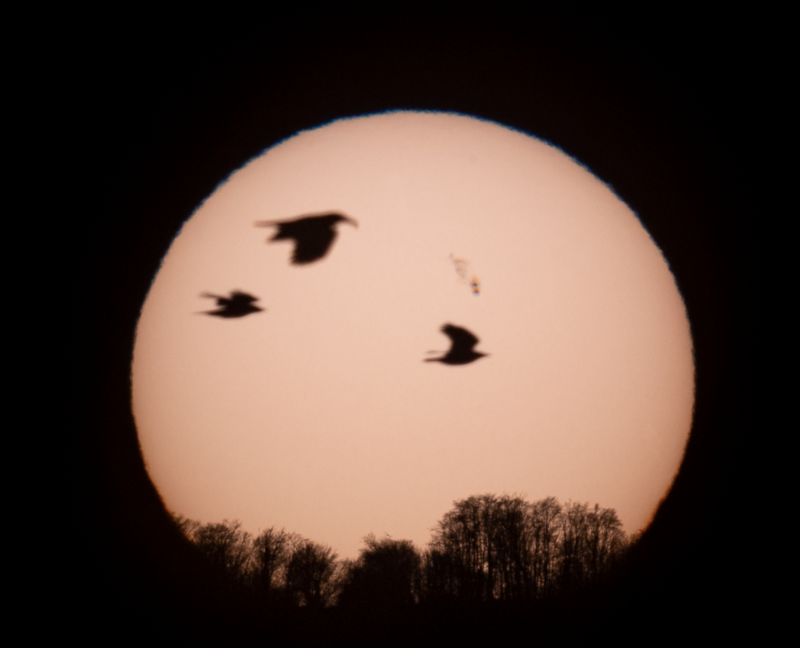
Big sunspot region now facing Earth
January 30, 2022: A big sunspot now facing Earth – called AR2936 – has quadrupled in size in only 48 hours. It’s now one of the largest active regions of Solar Cycle 25, which is currently on the rise. SpaceWeather.com reported:
As the sunspot turns toward Earth, the chance of an Earth-directed flare is increasing. NOAA forecasters say there is a 20% chance of M-class flares today and a 5% chance of powerful X-flares, odds that could increase further as the weekend unfolds.
In other words, there’s a chance of large flares on the sun and a possible subsequent Earth-directed coronal mass ejection or CME. Such events are powerful eruptions near the surface of the sun driven by kinks in the solar magnetic field. The resulting shocks ripple through the solar system and can interrupt satellites and power grids on Earth. They can also cause beautiful displays of the aurora borealis, or northern lights, which can sometimes reach into low latitudes like those in the northern United States.
EarthSky’s 2022 lunar calendars are available now! Guaranteed to sell out, so get one while you can.
Perfect for backyard scopes with safe filters
Tony Phillips at SpaceWeather.com also pointed out that the scale of this sunspot makes it an easy target for backyard telescopes, using safe solar filters. He wrote:
AR2936 has multiple dark cores larger than Earth, and the entire group stretches more than 100,000 km [60,000 miles] across the surface of the sun [Earth’s diameter is about 13,000 km, or 8,000 miles]. This is an ideal sunspot for projection techniques.
Stay tuned, and bookmark this post. We’ll update as more info comes in. Also, if you get a photo of large sunspot region AR2936, please submit it here.
Auroras possible?


Bottom line: A big sunspot region – AR2936 – has grown in size and has a chance of producing M-flares or even X-flares. If so, it could cause an Earth-directed coronal mass ejection (CME) and a subsequent good display of the aurora or northern lights.
Read more: 7 top tips for observing the sun safely
The post Big sunspot region AR2936 has quadrupled in size first appeared on EarthSky.
from EarthSky https://ift.tt/LHbRNGf7d

Big sunspot region now facing Earth
January 30, 2022: A big sunspot now facing Earth – called AR2936 – has quadrupled in size in only 48 hours. It’s now one of the largest active regions of Solar Cycle 25, which is currently on the rise. SpaceWeather.com reported:
As the sunspot turns toward Earth, the chance of an Earth-directed flare is increasing. NOAA forecasters say there is a 20% chance of M-class flares today and a 5% chance of powerful X-flares, odds that could increase further as the weekend unfolds.
In other words, there’s a chance of large flares on the sun and a possible subsequent Earth-directed coronal mass ejection or CME. Such events are powerful eruptions near the surface of the sun driven by kinks in the solar magnetic field. The resulting shocks ripple through the solar system and can interrupt satellites and power grids on Earth. They can also cause beautiful displays of the aurora borealis, or northern lights, which can sometimes reach into low latitudes like those in the northern United States.
EarthSky’s 2022 lunar calendars are available now! Guaranteed to sell out, so get one while you can.
Perfect for backyard scopes with safe filters
Tony Phillips at SpaceWeather.com also pointed out that the scale of this sunspot makes it an easy target for backyard telescopes, using safe solar filters. He wrote:
AR2936 has multiple dark cores larger than Earth, and the entire group stretches more than 100,000 km [60,000 miles] across the surface of the sun [Earth’s diameter is about 13,000 km, or 8,000 miles]. This is an ideal sunspot for projection techniques.
Stay tuned, and bookmark this post. We’ll update as more info comes in. Also, if you get a photo of large sunspot region AR2936, please submit it here.
Auroras possible?


Bottom line: A big sunspot region – AR2936 – has grown in size and has a chance of producing M-flares or even X-flares. If so, it could cause an Earth-directed coronal mass ejection (CME) and a subsequent good display of the aurora or northern lights.
Read more: 7 top tips for observing the sun safely
The post Big sunspot region AR2936 has quadrupled in size first appeared on EarthSky.
from EarthSky https://ift.tt/LHbRNGf7d

Aucun commentaire:
Enregistrer un commentaire